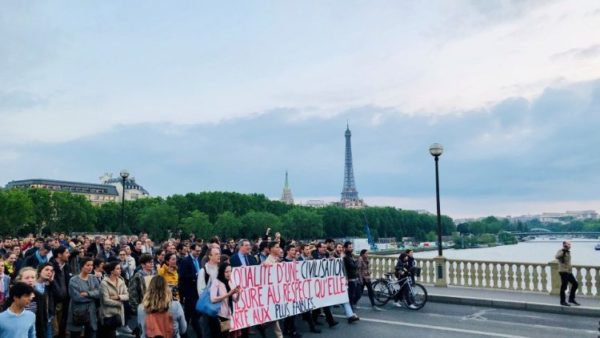Vatican officials call for continued care for Vincent Lambert
The Dicastery for the Laity, Family and Life and the Pontifical Academy for Life on Tuesday issued a joint declaration on the case of Mr. Vincent Lambert calling for continued life support.
By Vatican News
A joint declaration, signed by Cardinal Kevin Farrell, Prefect of the Dicastery for Laity, Family and Life and by Archbishop Vincenzo Paglia, President of the Pontifical Academy for Life, calls for continued care to support the life of Frenchman Vincent Lambert.

Vincent Lambert: French court orders life support to resume
42- year-old Lambert has been hospitalized in Rheims since 2008 following a motorcycle accident. He is quadriplegic and has suffered severe brain damage, but he continues to breathe autonomously. While some doctors describe him as being “minimally consciousness”, others claim he is in a “chronically vegetative” state.
This is the full text of the Vatican declaration:
In full agreement with the affirmations of the Archbishop of Reims, H.E. Msgr. Éric de Moulins-Beaufort, and the auxiliary bishop, H.E. Msgr. Bruno Feillet, in relation to the sad case of Mr. Vincent Lambert, we wish to reiterate the grave violation of the dignity of the person that the withdrawal of nutrition and hydration would constitute. Indeed, the “vegetative state” is certainly a burdensome pathological state, which however does not in any way compromise the dignity of those people who find themselves in this condition, nor does it compromise their fundamental rights to life and to care, understood as the continuity of basic human assistance.
Nutrition and hydration constitute a form of essential care, always proportionate to life support: to nourish a sick person never constitutes a form of unreasonable therapeutic obstinacy, as long as the person is able to receive nutrition and hydration, provided this does not cause intolerable suffering or prove damaging to the patient.
The suspension of such care represents, rather, a form of abandonment of the patient, based on a pitiless judgment of the quality of life, expression of a throwaway culture that selects the most fragile and helpless people, without recognizing their uniqueness and immense value. The continuity of assistance is an inescapable duty.
We therefore hope that solutions may be found as soon as possible to protect Mr. Lambert’s life. To this end, we assure the prayer of the Holy Father and all the Church.









